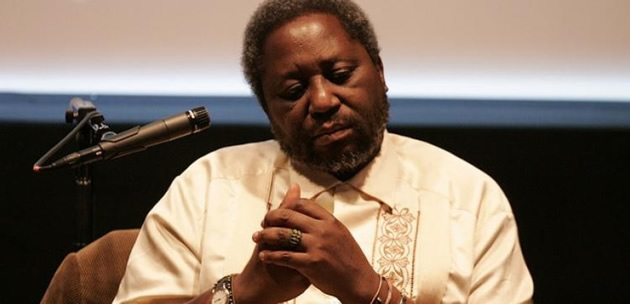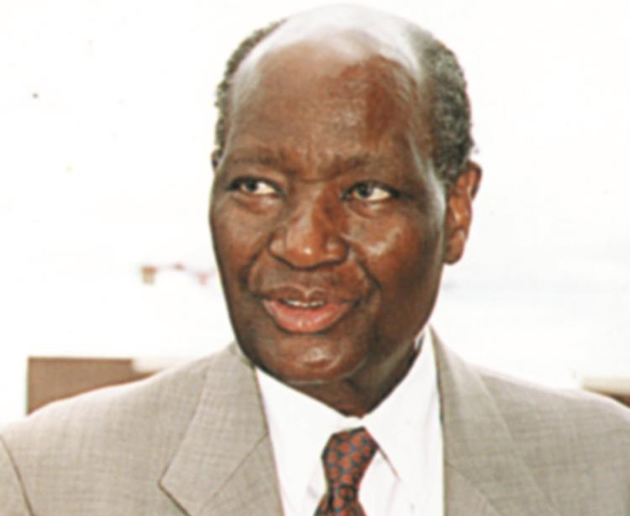Hove: People’s poet went rogue

Elliot Ziwira @The Bookstore
HE is dead, sure he died; he is surely dead, my brother. Look his cadaver lies silently in that posture of death; motionless; silenced and defeated.
My brother is dead, for they say he died on July 12, 2015 in Norway, so he must certainly be dead, for death dearly loves life that he must always embrace it; and leave us, the jaundiced, counting our loses as if to die is to lose.
Yes, they say he is dead, but are they dead sure that he be dead? Look, his hand moves in defiance to the silence and motionlessness that death, nay any fear inducing apparatus begets. Oh! He is immortal, my brother, sure he is, for he is an artiste, and artistes do not die.
He will not be silenced because he never uses his mouth to speak; look, his hand moves still in that purported posture of mortality as he reminds the world of the might of the pen. His words are not meant to be heard, yet their silent screams will echo from the millions of pages cutting across the universal landscapes of the oppressed; even after his body and soul partake their inevitable separation. He cannot be gagged because the stifled muffles of the wretched escape in millions of decibels from his silent mouth, giving voice to their suffering.
Indeed Chenjerai Hove is not dead, he refuses to succumb to death like the dastard, who, to borrow from Shakespeare, “die many times before their deaths”. He has only departed to another abode, like the migratory bird of his poetry; following the seasons’ call. His departure, following hard upon Freedom Nyamubaya’s, leaves the Bookstore haemorrhaging and yet cherishing the priceless words that remain the hallmark of shared experiences.
Chenjerai Hove, the people’s poet, has always known that “the death of the Kingdom begins with the death of a part of It,” (“Palaver Finish”) hence, the solution lay in avoiding death in the first place and not contamination which is only secondary.
Hove, cited in Viet-Wild (1993:3, 4), puts the rationale of the role of the artiste as the voice of the voiceless in context when he says: “African writers have to perform the task of helping to awaken the consciences of the world to the plight of the powerless in a world where the muscle of arms rather than morality seem to determine the fate of life”. Chinweizu et al (1985) also concur that “the artist in the traditional milieu spoke for and on behalf of his community”.
As the voice of the voiceless, Chenjerai Hove in “Up in Arms” (1982) compellingly tells the story of pain, suffering, hopelessness, greed and hypocrisy using imagery; visual, aural, olfactory, gustatory and tactile, as well as metaphors strewn all over the Zimbabwean’s landscape of pain and toil.
He captures the mundane and sordid nature of suffering during colonial times which has led to a protracted war that reduces everyone to a victim. He is also up in arms with the colonial baggage of civilisation which gives birth to oppression, greed and individualism. As a teacher, he is able to merge the past with the present to shape a future pregnant with hope, if only everyone desists from playing others’ flutes and claiming ownership of the tune.
The anthology is divided into four sections; Bleeding wounds, Tributes, Industrial Blades and Country Tears, which makes it easier for the reader to follow the thematic concerns raised.
Hove, the people’s poet, yearns for a better tomorrow for a society whose yesterday and today have brought nothing but gory images of over-burdened souls seeking solace in death. There is nothing romantic about suffering, so reasons the poet; thus he uses realistic and nihilistic traits of modernism.
The images of death that pervade the anthology create a sense of hopelessness, as the individual seeks to locate himself in a miasmic sphere that pays no heed to his toils as he trudges on along the thorny and tumultuous path of his existence. Death, which “is a necessary end” and “comes to all at last” as William Shakespeare aptly says, is used as a form of escapism.
Such is the extent of the disintegration at the centre of the family unit, community and nation that the poet takes a swipe at.
Though the collection was first published in 1982, it is timeless and does not follow a particular setting which makes it open to a plethora of interpretations depending on one’s situation. Serve for the rather idiosyncratic imagery used, Hove’s language is simple and conversational and appeals to the reader’s heart to take heed. He also does not burden the reader with contrived diction and other traditional conventions which make the reading of poetry cumbersome
The poem “Hospital Times” pokes at the paradoxical nature of life and the unselective nature of death, as two patients are hospitalised; one is dying of malnourishment and the other of overeating. In the poems “Imported Differences” and “Letters to Ezekiel”, the poet questions the validity of Christianity on the African as it seems to alienate him from his culture and his people. Ezekiel abandons his parents and siblings because he is born again, and yet the scriptures which he purports to know so well clearly advocates the need for one to love, respect and look after one’s parents, especially in their old age.
The tragedy of Western education premised on set syllabi finds space in the collection, as it gives birth to individuals who know so much and yet so little. If they fail to get jobs in the ever receding job market, they become redundant, for they are never taught any real life skills.
Hove’s work reflects on the nature of oppression, not on the reasons or colour informing it. His pen easily changes targets as oppression itself is poly-pronged. However, it is his self-imposed exile for reasons that remain as boggling as they are vapourish, which inspires gripe.
He took to the wing, like the harbinger of rain in his poetry; the migratory bird which fails to bring hope to a community anchored in its spiritual connectedness; as it remains on the wing.
As the voice of the voiceless and truth’s defence, his abandonment of the feeble and vulnerable for the comfort zone of the countries of the same people he attacks in his work, points to deceit and hypocrisy.
The struggle ceases to be collective the moment an artiste thinks of the self at the expense of his people, especially so when he seems to be lured by donor funds. Virulent salvoes thrown at the political framework of one’s country from a personal perspective appended to an ideological albatross perched in foreign lands, is neither heroic nor gallant. There is no valour in crying out, “Wolf” from a vintage point when the rest are in the open borough.
The foes that the artiste runs away from, real or perceived, still remain to prey on the voiceless who need him even more than he does.
Shimmer Chinodya has this to say about Chenjerai Hove’s decision to abandon ship: “What is sad about my friend Chenjie (Chenjerai) and people like Thomas Mapfumo is that you throw yourself at the system. . . This donor community will pluck you out if (you say) you are in trouble, gives you a place, lectureship, money and all. You can’t come home. It will be like selling your soul.”
An African artiste should be wary of hunting with the hounds and purport to be running with the hares. As espoused by Mphahlele, cited in Mbiti (1969:262) an African artiste; “Can but express an African personality. There need be no mystique about it. . . The artiste must keep searching for this African personality. He can’t help doing so because after all it is really a search for his own personality.”
It is folly for an artiste to be a renegade to his/her own people; he/she should remain on their side because the writer: “Speaks not for himself only but his fellowmen. His cry is their cry, which he only can utter. That is what gives it its depth. But if he speaks for them, he must suffer with them, rejoice with them, work with them, fight with them. Otherwise what he says will not appeal to them and so will lack significance,” (Thomson, 1975:60).
If he ceases to suffer with them, how then can he fight for them when his war cry is uttered from rooftops or hotel rooms in faraway capitals?
He can only become a rogue and not an icon of the struggle against oppression.
The irony is striking that the deceitful Rosencrantz and Guildenstern in Shakespeare’s “Hamlet” meet their fate in a foreign land, becoming “hoist by their own petard,” as they are their own messengers of death.








Comments